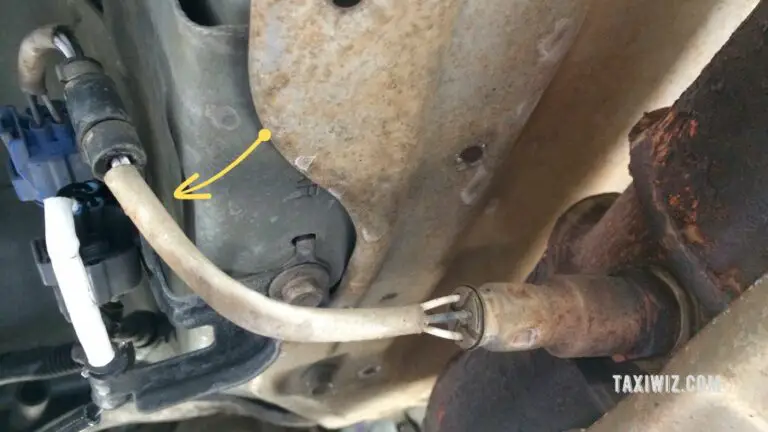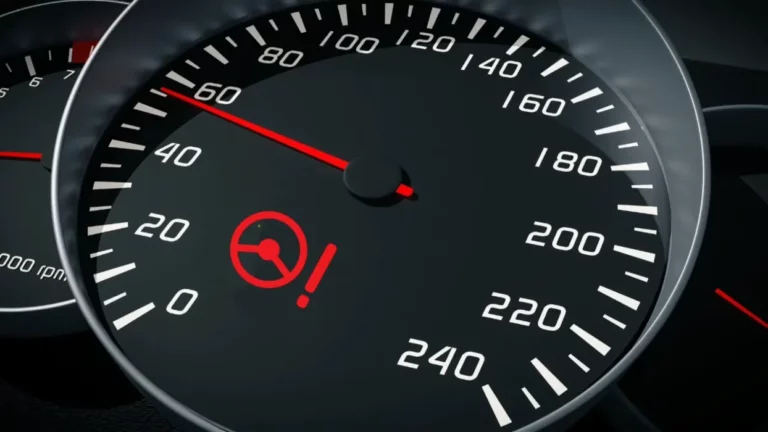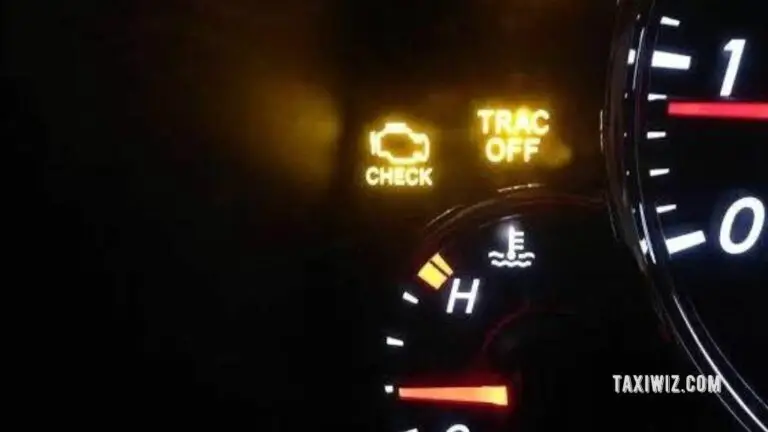Car Won’t Start But The Lights Come On, No Clicking Noise
Sometimes our personal vehicles act in confusing ways. Many people come to us with the complaint that their car won’t start, but the lights come on, and no clicking noise!
What could it mean? Well, in many cases, it’s a sure sign that the battery is dead.
However, there’s no one right answer. The culprit could also be a faulty ignition problem just as much as it could be a blown fuse. It might even be that your car is running low on gas.
In order to find a solution, first you must identify the problem. Here are the different ways you can do that.
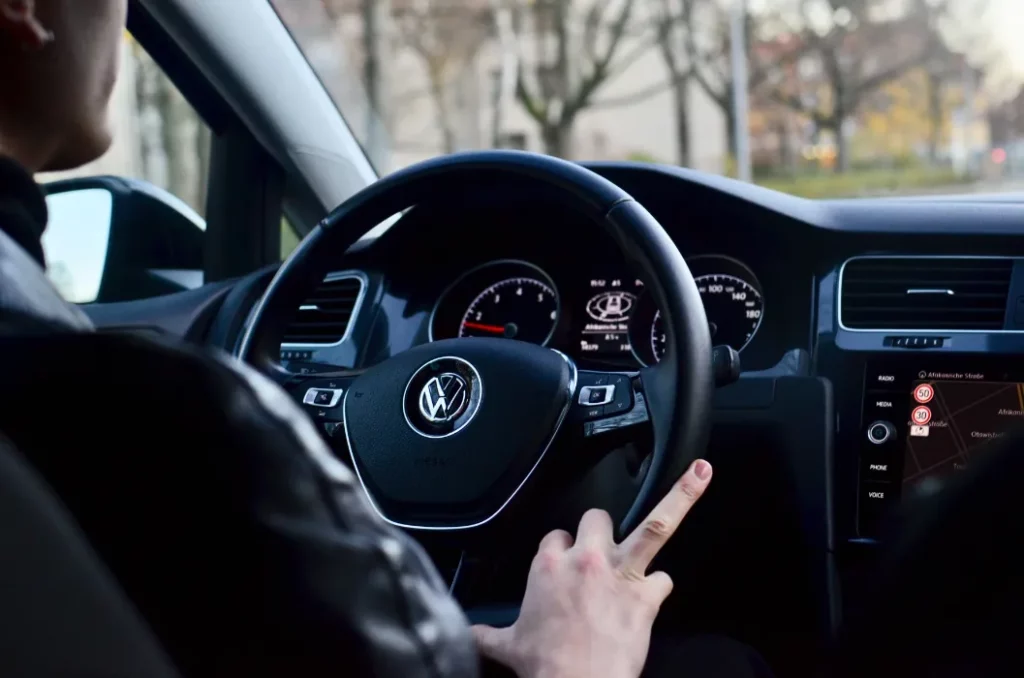
Car Not Starting But the Lights Come On
The reason could be any of the following:
Dead Battery
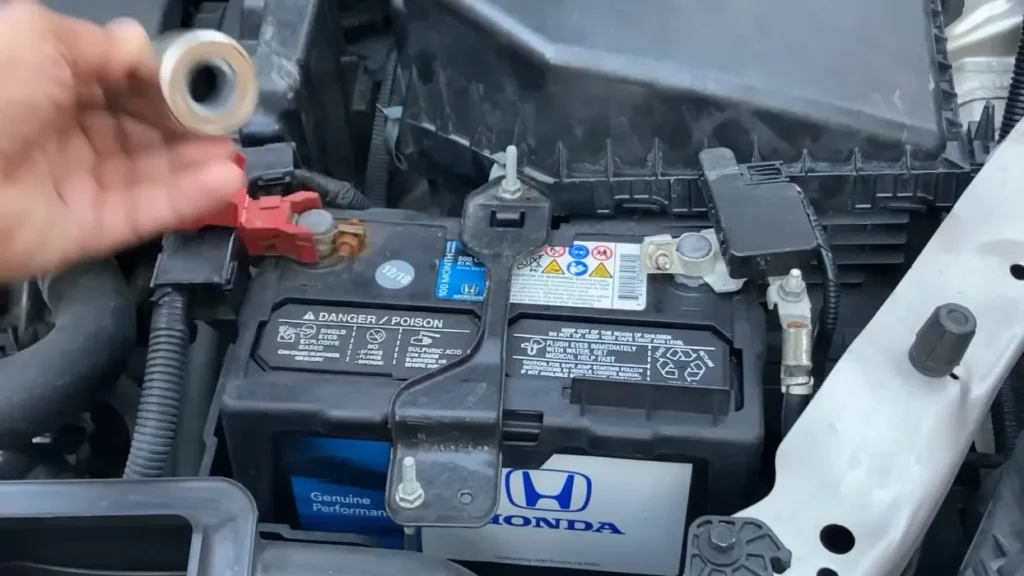
This one’s a no-brainer, but if your battery is dead, your car won’t start.
However, it could just be that your car has been sitting idle for too long and your battery is unable to muster the power required to start the engine. In this case, you could try jump-starting it. However, if that doesn’t work, a battery replacement may be required.
If this is the case, you might be wondering how your car’s lights are coming on even though the battery is dead.
Usually, this can be attributed to residual power, an electrical system malfunction, a malfunctioning automatic light sensor, or a faulty light switch.
Faulty Ignition System
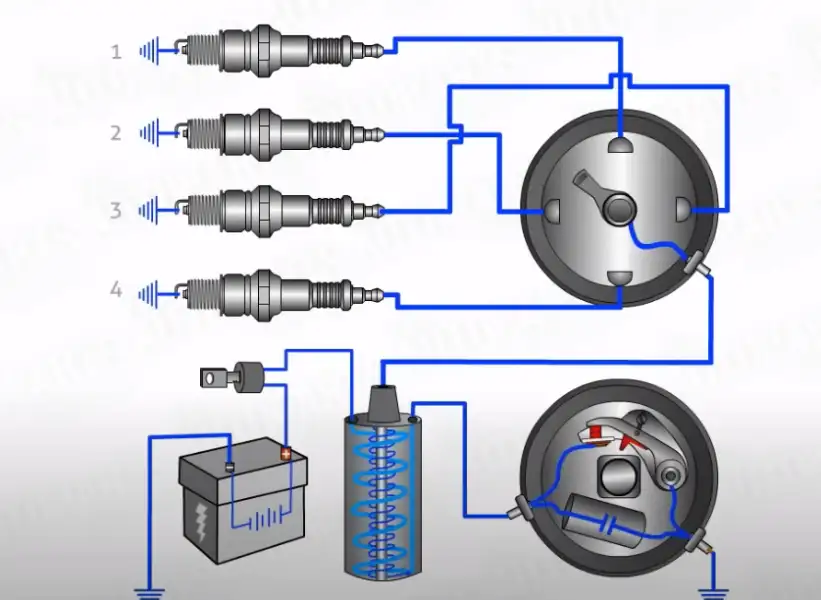
If the car isn’t starting, and there’s no clicking sound, a faulty ignition switch could be to blame.
How can you identify a faulty ignition system? Look out for the following symptoms:
- difficulty starting the engine
- frequent stalling or engine misfires
- lower fuel efficiency
- loss of power or acceleration
- engine shutdown
- unusual engine sounds or vibrations.
Besides these, you may notice problems with the electrical components, such as the headlights or dashboard lights flickering or not working properly.
If you notice any of these signs, get your ignition system inspected as soon as possible, and if needed, repaired by a qualified mechanic.
Faulty Electrical Parts or Bad Wiring
It’s important to get under the hood sometimes if you think that your car is acting strangely. In particular, it’s recommended to check the electrical components and wiring connections to the car’s battery and/or to the starter solenoid.
Look out for malfunctioning wires or electrical parts showing signs of erosion. More often than not, these can cause car mechanisms to malfunction. It’s also advisable to check for any misconnections or loose wiring.
If the wiring is compromised (think shorts or improper connections), this can lead to unintended power flow to the lights, bypassing the battery.
Similarly, faulty electrical components like relays or switches can malfunction and send incorrect signals, causing the lights to turn on even if your car is stalled.
Malfunctioning Starter Solenoid
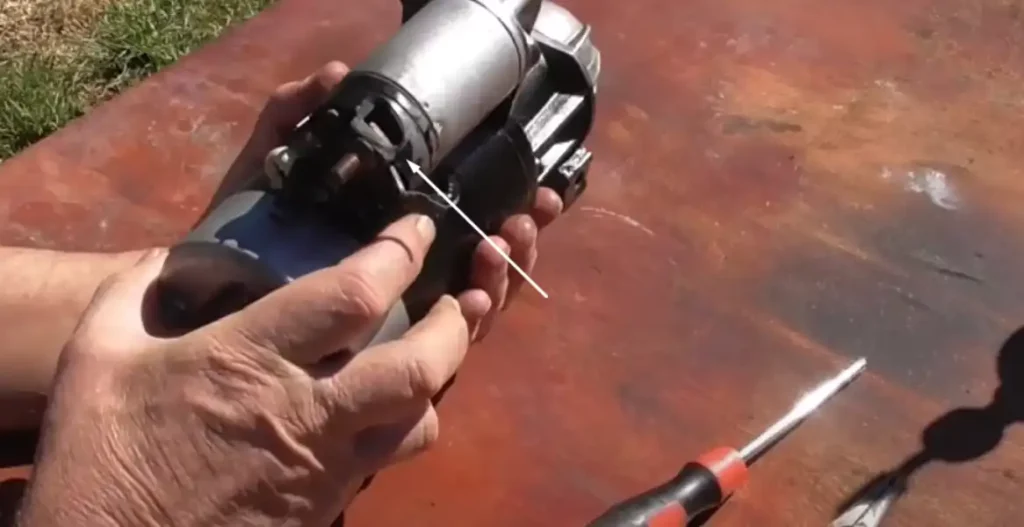
This is a major cause of a car not starting even though lights are being turned on and there is no clicking noise.
First, it’s important to understand what the starter solenoid does. It basically initiates the engine’s starting-up process. When the ignition key is turned, the starter solenoid
The starter solenoid in a car is responsible for initiating the engine’s starting process.
When you turn the key to start the car, the starter solenoid receives a signal and connects the car’s battery to the starter motor, allowing electricity to flow and start the engine.
In simple terms, the starter solenoid is a switch that connects the battery’s power to the starter motor.
The long and short of it is that your car will not start if your starter solenoid is compromised. Moreover, a faulty solenoid can cause damage to your car and is sometimes prone to producing clicking noises.
Issues with Engine Immobilizer
An engine immobilizer is a security feature in modern vehicles that prevents the unauthorized starting of the engine.
It consists of a transponder chip embedded in the vehicle’s key (or key fob) and an immobilizer system in the vehicle.
When the key is in proximity to the immobilizer, the system sends a signal to the chip to authenticate a unique code. If the code is correct, the engine starts. If not, it prevents the engine start by cutting off fuel or disabling the ignition.
While this undoubtedly enhances vehicle security and reduces the possibility of theft, it can cause problems when it goes wrong.
If your car’s immobilizer cannot recognize your key fob, it won’t start. Naturally, in this case, it’s recommended to check your key fob for any defects.
Car Turning Over But Not Starting
Is your car turning over, but failing to start? This is another common concern that should be addressed before the problem gets any worse.
You might want to consider the following reasons for this happening.
Faulty Spark Plugs
A spark plug is a vital component of the engine. Its function is to ignite the fuel mixture.
Engine misfires, difficult starting, decreased fuel efficiency, lack of power or acceleration, rough idle, and increased emissions are all signs of faulty spark plugs.
Fuel Leakage
Fuel leakage can be a possible cause of a car cranking or turning over but not starting.
A fuel leak can result in insufficient fuel reaching the engine for combustion, preventing the engine from starting. Check for fuel pump damage or blockages in the filters.
It’s important to clear filters of any obstacles and replace worn-out fuel pumps.
Compression Loss
If your engine is worn out, this can cause cylinder leaks. This, in turn, can lead to low compression, which prevents the engine from starting.
If you suspect this might be a problem, it’s recommended to check the timing chain. Also, look out for a stuck valve or head gasket leak.
Malfunctioning Ignition Components
Once again, properly functioning ignition components are of utmost importance. A faulty ignition coil is prone to misfiring and then affecting the performance of other components within the engine.
The fuel injectors and fuel pumps can also be negatively affected by a blown fuse.
Related Post: Car Making High-Pitched Noise? Causes and Fixes!
Frequently Asked Questions [FAQs]
Why is there no clicking noise even though the car won’t start and the lights come on?
If there is no clicking noise when your car won’t start, and yet the lights come on, this is often indicative of a faulty starter motor or a weak electrical connection.
Why does my radio still work if my car battery is dead?
A battery that is fully drained won’t allow your radio to work. In this case, it’s likely that the radio has a separate power source connected directly to the battery, allowing it to work even if the main battery is dead.
How much does it cost to replace a car battery?
The cost is usually between $50 and $200, as it depends on numerous factors. The battery brand, whether it’s aftermarket or original, and where you live all affect the price. The price might even go up to more than $250.
What causes a car battery to die?
There are many reasons a car battery might die. It could be because it has reached the end of its life (which tends to be anywhere between 2 and 5 years). Extreme cold or heat can also be a cause.
Final Words
A dead battery, problems with the ignition system, faulty electrical components or wiring can all be reasons for your car not starting even if its lights come on and there is no clicking noise.
If you’ve diagnosed the problem yourself, good going! However, it’s best to leave the repairing part to skilled mechanics.

